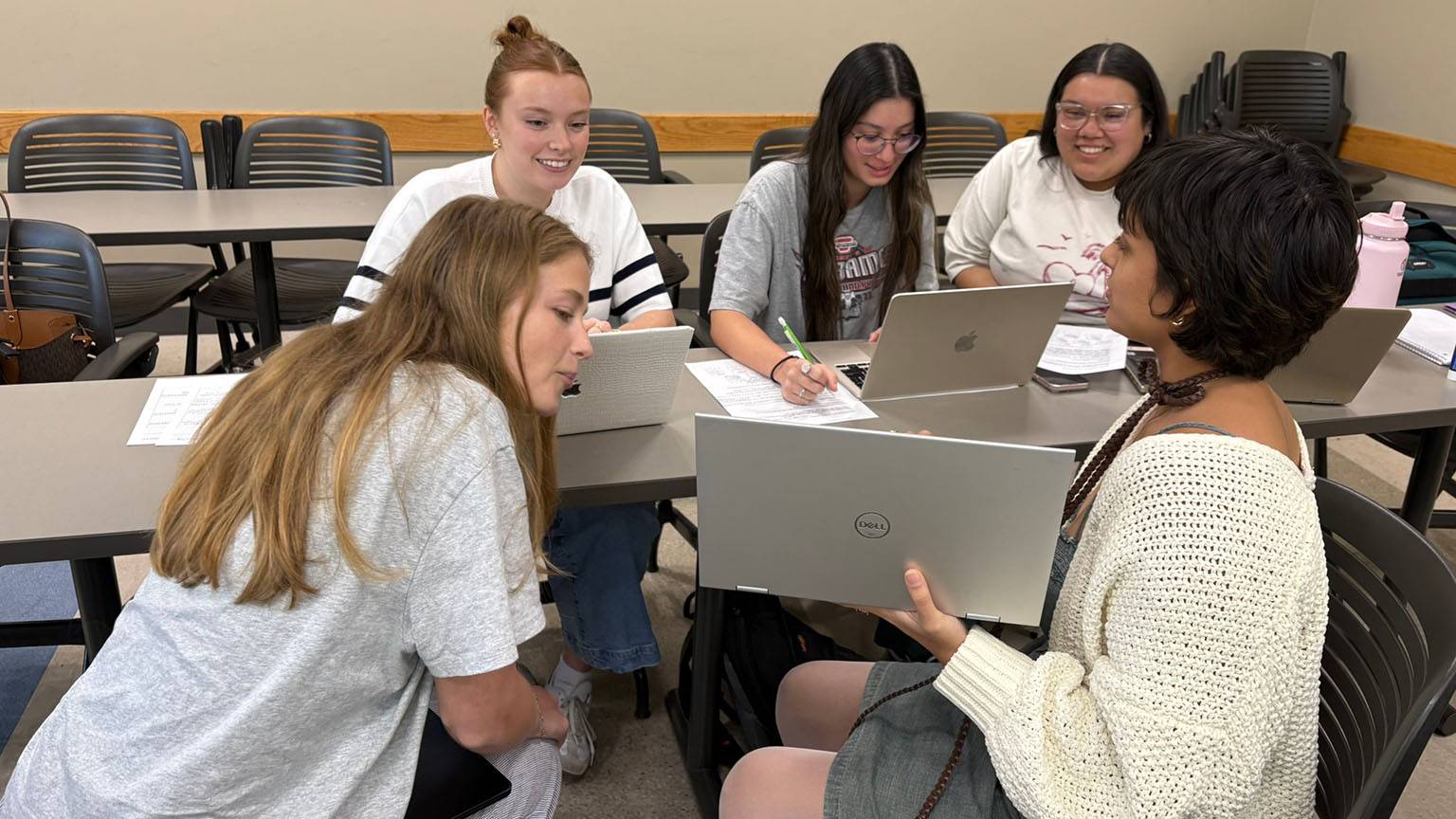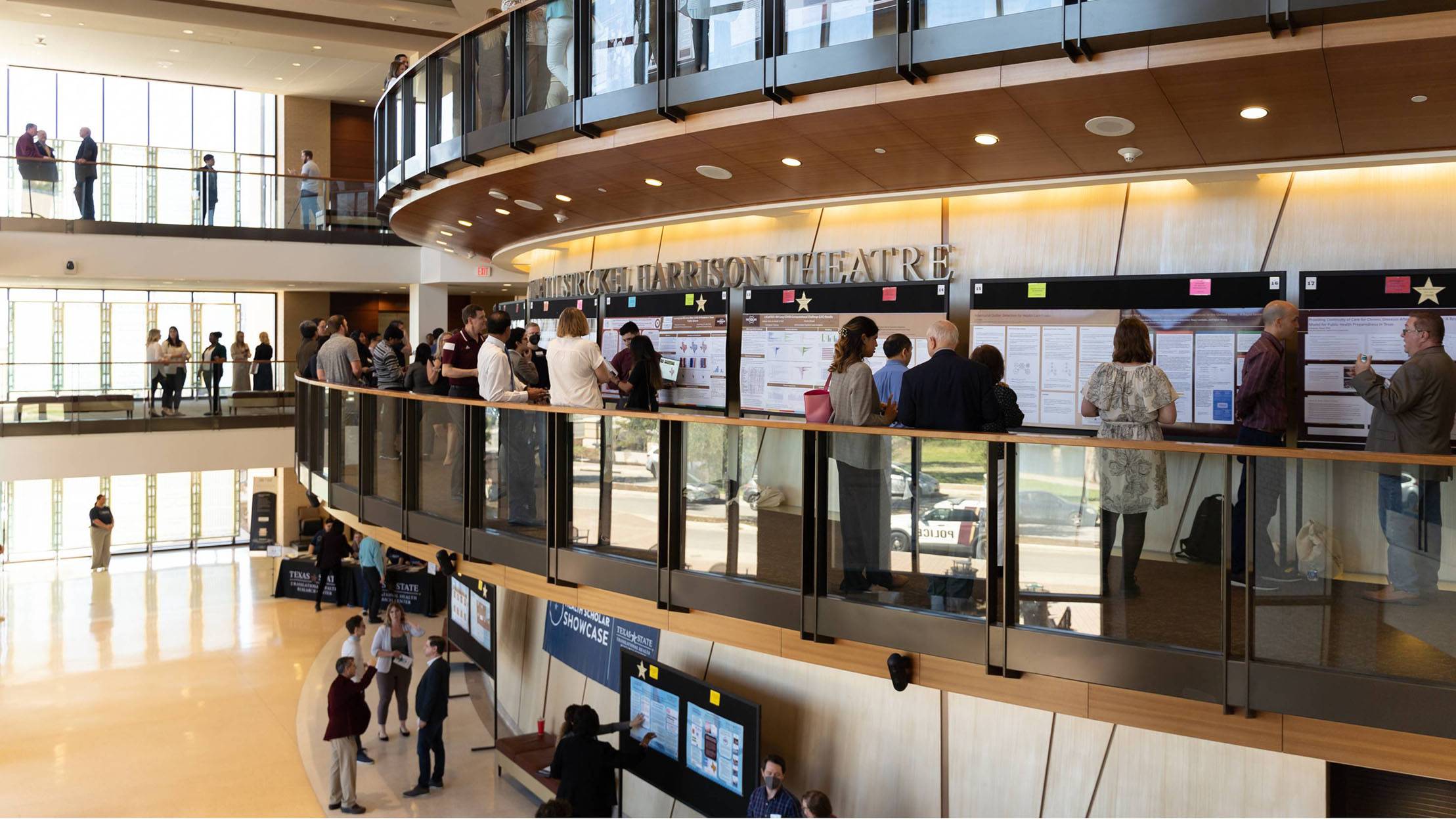Texas State University will host the inaugural Service-Learning Showcase on April 4 from 2-4 p.m. in the Minifie Atrium on the fourth floor of the McCoy College of Business with light refreshments for staff, faculty, and students. The showcase will highlight the innovative teaching, impactful research, and student projects that exemplify the spirit of service-learning at TXST.
Attendees can explore projects led by students that address real-world challenges, learn about creative teaching approaches from faculty who are driving innovation in service-learning, and engage with research that strengthens the connection between academic excellence and community impact.
“The goal is to get people who are interested in service-learning as a pedagogical approach in the same room together and to let folks know how important it is,” said Steven Rayburn, Ph.D., faculty director of Service-Learning Excellence. “It’s also a chance to tell them we're thankful for what they’ve done.”
Rayburn said service-learning is effective in the classroom because of two reasons. One is it’s considered experiential learning, so students can practice their craft with community partners. In turn, community partners can accomplish things they might not otherwise be able to on their own.
“The second piece is when students are exposed to community problems and challenges, they get a better awareness of what’s going on around them,” he said. “We have a position to fill in this world, and service-learning allows them to understand their responsibility in solving these problems.”
Yishan Shen, Ph.D., associate professor in the School of Family and Consumer Sciences, incorporated service-learning in her graduate research methods class. A group of graduate students had the opportunity to collaborate with a Hays County truancy court judge to investigate the reasons behind adolescent truancy and how to improve court service.
“Service-learning is important because not only does it make learning more relevant and engaging for students, but it also benefits the community partner by providing them with evidence-based recommendations on how to improve their service, which ultimately has a broader impact of helping the at-risk adolescent families that they serve,” Shen said.

The graduate students in Shen’s research methods class said participating in service-learning was beneficial because it “combines learning about research and applying that to a real-life situation.”
“With our collaboration with a Hays County truancy court judge and investigation into reasons behind adolescent truancy, we have been able to learn through the research process with our own personal projects,” the students said in a joint statement. “Each of us are pursuing a field that helps children, and this service-learning experience embodies our passions and helps us grow our knowledge while also helping our community."
Visit the Service-Learning Excellence webpage for more information about the team, mission, and benefits.
